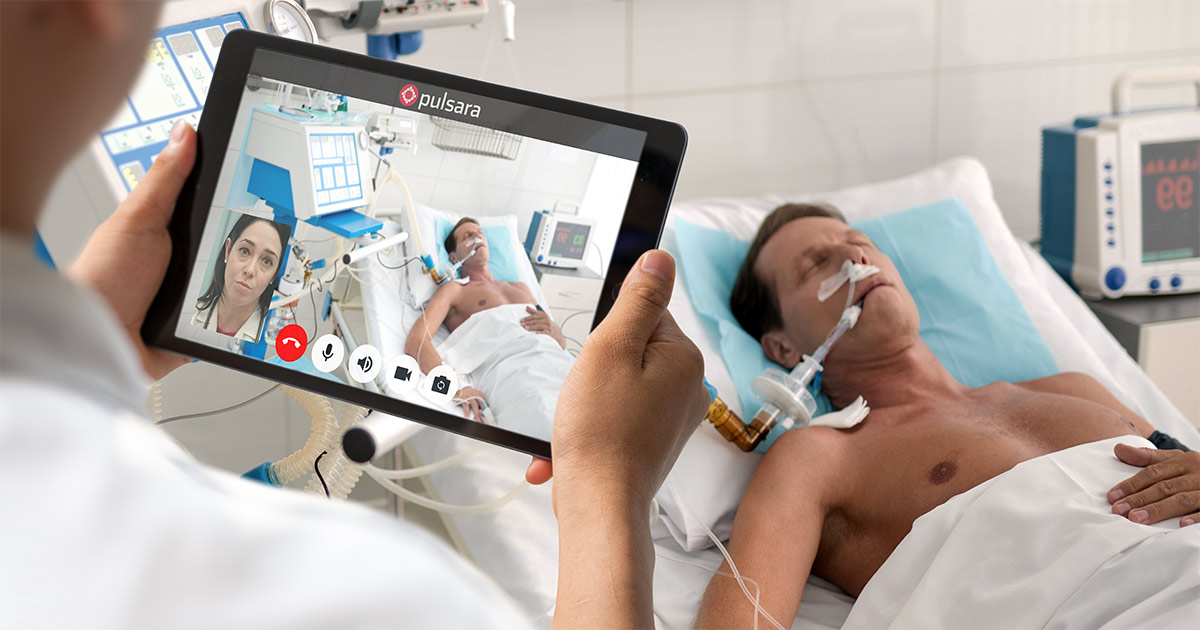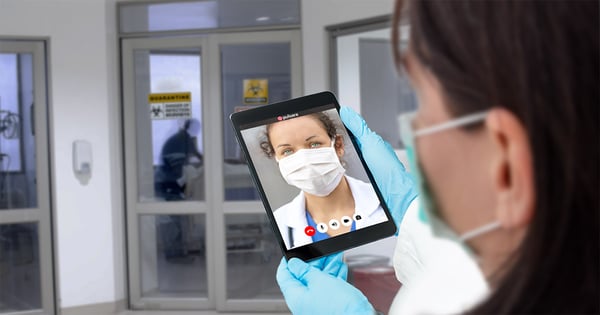Pulsara Around the World - February 2026
January Recap The start of 2026 was on the slow side for our events schedule, with our team heading to the Florida Fire & EMS Conference, the...

EDITOR'S NOTE: Special thanks to Kinsie Clarkson (Pulsara's Product Marketing Specialist, 2020-2025) for writing today's blog post. You can connect with her on LinkedIn.
This is part 4 of our blog series on the Top 5 Challenges in Rural Healthcare. Check out the other posts in this series here.
__
Rural clinicians are some of the most hardworking, dedicated, and caring people you will ever meet. But even the greatest heroes still need support, collaboration, and mentorship. From lack of funding and regulations to patients struggling to access care, rural healthcare providers face a whole host of unique challenges. And unfortunately, the COVID-19 pandemic has only made many of these challenges even more pressing. As of January 2021, more than 800 rural hospitals are at a high or immediate risk of closure.
With all the other challenges piled on top, rural clinicians may feel more isolated. While the opportunity for a more personal and continuous relationship with patients is greatly rewarding, rural health also often has fewer resources and few colleagues to turn to for a second opinion. Practicing in a rural area can be made more difficult by the lack of a solid support system.
 Recently, prominent rural healthcare authorities in Georgia and Colorado Springs sat down for exclusive interviews with Pulsara to weigh in on some of the challenges that rural clinicians are currently facing, as well as some of the innovative solutions they believe can help.
Recently, prominent rural healthcare authorities in Georgia and Colorado Springs sat down for exclusive interviews with Pulsara to weigh in on some of the challenges that rural clinicians are currently facing, as well as some of the innovative solutions they believe can help.
In this 5-part blog series, we will explore each of the top 5 challenges that rural healthcare currently faces, and how new technology could be key to solving some of them.
Today, we'll discuss the fourth major challenge: Finding support and mentorship.
The current workforce shortage in rural health is a growing problem and is often cited as one of the top issues in rural health. However, it's only a symptom of a much deeper issue: the lack of a support structure. Rural health has enough of a challenge attracting physicians to practice in less densely populated areas. Without a support system, few physicians survive long in rural healthcare.
Rural healthcare can be a lonely existence for many clinicians. You’re largely on your own, without other colleagues to turn to for advice or a second opinion. And when you’re just starting out, there are few things more terrifying than the experience of not having someone to turn to for guidance. Dr. Jean Sumner, Dean of the School of Medicine at Mercer University, speaks from experience: “No matter how long you go to school, I can tell you, you think you're smart until you see patients. When you see patients by yourself, you realize that you don't even begin to know what you need to know. And it terrifies you. And in a rural community, you can be the best doctor on earth but miss one diagnosis, and the entire town thinks you're an idiot. And so, you pack up and leave. You don't have anybody there to say, ‘The new doctor handled that exactly right,’ because you're the only person there.”

Chris Scoggins, Director of Special Projects at Georgia Rural Health Innovation Center, agrees. In order to better support physicians, he feels it’s important to not only focus on what rural hospitals don’t have or need but also to focus energy toward supporting what is already going well. “Physicians burn out because we’re not supporting them,” he said. “Hospitals don’t get the lifelines they need to find and invest in the gems already within the community. Instead of coming and saying, ‘What do you not have?’ The first question needs to be, ‘What do you have that we can capitalize on and do a better job of supporting?’”
Dr. Sumner feels strongly that the first step is to establish a support network. Young physicians need someone to look to—a colleague or mentor they feel they can turn to when they don’t have all the answers. “We're still training doctors without the skills to help them survive in rural areas. Before, they came out of tertiary care hospitals and had a mentor in their rural community that helped them broaden their range of skills and learn the things they needed to know. Now, those mentors are not there.”
And that, she feels, is where telehealth can help narrow the divide. By building a network where rural clinicians can use their telehealth platform to not only see patients but also connect with other clinicians to seek mentoring and advice, it could help them feel a little less alone. “Telehealth can fill that gap: a second opinion, a colleague that you can turn to and say, ‘Let me run something by you,’” said Dr. Sumner. “One of the saving graces of telehealth is it can help serve a mentoring function.”

That mentoring function is twofold. Telehealth can connect rural clinicians with specialists who can offer specialized insight into a patient’s case or a second opinion on the best course of treatment. But it can also connect rural clinicians with other rural specialists who understand the nuances of providing excellent healthcare in a rural community. The opportunity to consult with other clinicians who have stood in their shoes, understand what they’re going through, and can offer advice might help rural clinicians feel less like an island, helping build them the support structure they need.
The ability to connect with other healthcare providers could be a lifeline for rural clinicians, offering them support that might not be immediately available in their area. Telehealth could be an excellent first step in building a better support system for clinicians in rural areas, helping them feel a little less isolated and a little better equipped to help their patients.
To explore the other top challenges that rural healthcare currently faces, check out our posts on Access to Care, Finding Funding, and Rural Health Regulations.

January Recap The start of 2026 was on the slow side for our events schedule, with our team heading to the Florida Fire & EMS Conference, the...

Recent research shows how Pulsara was successfully leveraged to connect more than 6,000 COVID-19 patients to monoclonal antibody infusion centers via...

At Pulsara, it's our privilege to help serve the people who serve people, and we're always excited to see what they're up to. From large-scale...